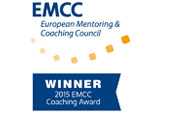One of the topics that comes up in supervision is the challenge of establishing a thriving coaching practice. In an increasingly crowded marketplace how do people get established? Are there elements that help, and if so what? This short article is not about marketing in the conventional sense, it is about our wider presence. This mirrors the work we do with clients too. What might be the factors that support some people in becoming “successful”? It is only our thoughts, and is not meant as “reality”! But as we share this with our supervisees, and people we train, we thought there might be one or two things that others would find useful.
In our experience, in the executive and business field, a key element is credibility. If organizations are going to pay money to bring an outside coach in, they want to know what credibility the coach has in the field of business and leadership. Do they “get” the challenges of a VUCA (Volatility, Uncertainty, Complexity, Ambiguity) leadership world? In this regard, emphasizing one’s role as a leader may be just as important, if not more, than coaching qualifications and/or accreditations. And it is easier, in our experience, for those who already have a good organizational network to make the transfer.
14 steps to success:
- Be ruthless in your examination of your practice. How motivated are you? What are you prepared to do to be successful? What are your strategies? What support do you have in place including supervision, peer support, CPD.
- Understand what your unique contribution can be to help you flourish and stand out from the thousands of other coaches: this may be to do with sector specialism, working with certain transitions, or approaches.
- Emphasize your leadership credentials, from previous roles or other activities.
- Be interested in the Business and its challenges and be prepared to talk as a business partner, not just as a coaching supplier.
- Consider how you promote yourself and the networking you do. That includes your presence, how you dress, how you walk into a room, which meetings you attend, the balance of listening and talking, your attention to others.
- Join and be active in a professional body(ies). There are some excellent bodies, and they are almost entirely run on the volunteer efforts and goodwill of members and therefore are always pleased to hear from members volunteering.
- Write and publish – start small if necessary but share thoughts, resources, book reviews, a newsletter. It’s part of getting known and getting your name out there.
- Use social media – contribute to professional body discussion groups on LinkedIn, start threads, use Twitter, do blogs etc.
- Present at conferences – and if you aren’t ready to do that yet, then offer to help out on stands at conferences, make connections, develop areas of interest and expertise. Connect with others who are speakers, but have limited time for preparation and offer to help!
- Develop good relationships with one or two big organizations – people will be buying you. This may take months, even years. See them as partners. Talk about value added, not direct selling but what you additionally can offer, over and above the 1-2-1 or team work you do. You might offer the Board themes, offer to talk to leaders about how to make the best use of coaching etc. For organizations that are new to coaching you might also mention what to look for in a coach or a supervisor they bring into the organization to model best practice (e.g. trained, in supervision, member of a professional body etc.).
- Build your practice with selective and appropriate volunteering, for example organizations from the third sector. Target the right staff level for the work you want to do e.g. for executive coaching, offer your services at Director level.
- When you have built a strong relationship, “follow” your key contacts to other organizations.
- When you have a client (organization) that starts using you regularly, ensure you go beyond doing a good job – delight them. Offer them additional value they didn’t expect. For example, feeding back cultural themes to support organizational learning, opening and closing 3 or 4-way contracting meetings, spreadsheets with the clients you are coaching, the number of sessions they have had and next dates. This helps them with budgeting and their business planning.
- Find a supervisor who also can act as a mentor/business advisor and advise you on developing and maintaining a business. To earn a living, you also need a business mindset, considering income and expenditure and developing rates and offerings accordingly. This can be a challenging area for some coaches.
GOOD LUCK!
Eve Turner and Professor Peter Hawkins















